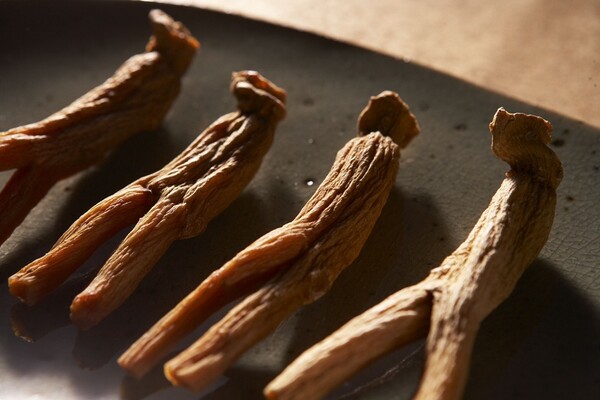As Korea faces a sharp rise in flu cases and worsening fine dust pollution, demand in immune-supporting supplements, including red ginseng, is growing.
Hospitals are seeing a surge in flu patients, while prolonged exposure to fine dust is linked to increased bronchial inflammation, elevating concerns about respiratory health.

Red ginseng, officially recognized by Korea’s Ministry of Food and Drug Safety (MFDS) for its immune-boosting and anti-inflammatory properties, is drawing renewed attention, Korea Ginseng Corp. said Monday. Research suggests it enhances immune cell activity and mitigates respiratory illnesses triggered by viral infections and environmental pollutants.
Red ginseng’s immune-modulating effects
At Georgia State University, researchers led by Kang Sang-moo at the Institute for Biomedical Sciences found that red ginseng supplementation reduced respiratory syncytial virus (RSV) levels by 45 percent. The study also showed significant immune cell activation, with CD8+ T cells increasing 9.24-fold and CD4+ T cells rising 9.5-fold, indicating a potential role in viral defense.
A separate study from Sungkyunkwan University, led by Professor Rhee Dong-kwon, who specializes in pneumococcal infection and immunity, found that red ginseng enhanced pneumococcal vaccine efficacy. Mice pre-treated with red ginseng (100 mg/kg) for 15 days before receiving the pneumococcal vaccine showed a 25 percent increase in antibody production.
In another trial, mice infected with Streptococcus pneumoniae had a 100 percent survival rate when given red ginseng, compared to 50 percent in the control group. The treatment also significantly reduced inflammatory cytokines TNF-α and IL-1β.
Protection against fine dust-induced inflammation
Fine dust, a persistent environmental hazard, exacerbates lung inflammation. Studies suggest red ginseng may counteract its effects.
At Yonsei University College of Medicine, Professor Lee Duk-chul’s team found that red ginseng outperformed anti-inflammatory drugs in reducing cytokine levels linked to fine dust-induced allergic pneumonitis.
Similarly, Professor Kim Seung-hyung’s team at Daejeon University found that red ginseng suppressed neutrophil-driven inflammation by 48 percent and decreased TNF-α levels by 36 percent in lung tissue and 45 percent in bronchoalveolar lavage fluid in mice, indicating reduced respiratory inflammation.
“Red ginseng regulates the activity of macrophages by inhibiting nuclear translocation of immune proteins,” noted Professor Cho Jae-youl from Sungkyunkwan University. “This suppression reduces the production of inflammatory mediators such as nitric oxide, reactive oxygen species, and tumor necrosis factors, thereby exhibiting anti-inflammatory effects.”
Related articles
- [Contribution] Can we avoid cancer by controlling the food we eat?
- New studies highlight red ginseng’s potential in colon cancer inhibition and gut health improvement
- Red ginseng improves digestive health, quality of life in post-surgical cancer patients: study
- Red ginseng improved drug withdrawal and dependence: study on mice
- Long-term air pollution exposure linked to higher osteoporosis risk in cancer survivors
- Korean study on red ginseng oil’s efficacy in treating BPH wins award
- 'Vitamin D during pregnancy found to protect against fine dust–related kidney damage'

